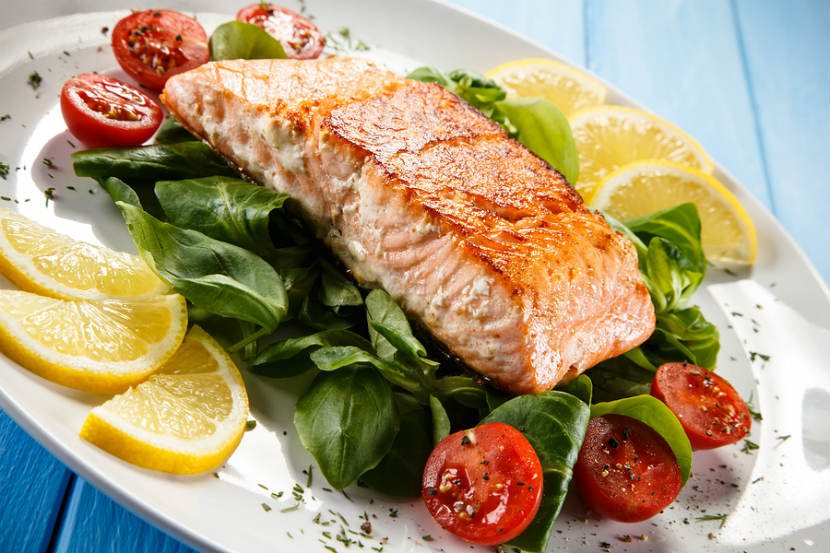
Did you know? The benefits of eating fish, greatly out weigh the risks. Eating Well with Canada’s Food Guide recommends at least two Food Guide servings (75 grams each) of fish a week. That’s 150 grams, 5 oz, or one cup cooked fish a week.
What types of fish are OK to eat?
Choose fish higher in omega -3 fatty acids more often such as: salmon, anchovy, char, herring, Atlantic mackerel, pollock (Boston bluefish), smelt, rainbow trout, lake whitefish, shrimp, clam, mussel, and oyster.
Other safe fish include:
-
Cod
-
Haddock
-
Halibut
-
Sole
-
Scallops and squid
-
Snapper
-
Perch
-
Bass
-
Tilapia
What about tuna?
Choose “light” tuna. Look for skipjack or tongol on the label. It has less mercury than “white” (albacore) and tuna and is generally less expensive.
Limit these fish
Large fish tend to accumulate more mercury over time. Because mercury affects the developing brain, it’s especially important for women that may become pregnant, are pregnant or nursing, as well as young children to limit their exposure to mercury.
Limit fresh/frozen:
-
Tuna
-
Shark
-
Swordfish
-
Marlin
-
Orange roughy
-
Escolar
If you like these fish, eat no more than the amounts shown here and make up the rest of your weekly fish servings from other fish.
General Population: 150 g per week
Women who are or may become pregnant and nursing moms: 150 g per month
Children 5-11 years old: 125 g per month
Children 1-4 years old: 75 g per month
What about sport fish?
The levels of mercury in fresh water fish can vary. Find out about any fish advisories from provincial and territorial authorities before eating it. Get a copy of Guide to Eating Sport Fish in Ontario from your local public health unit or the Ministry of the Environment.
Find out more:
Consumption Advice: Making Informed Choices about Fish, by Health Canada
Omega -3 fats deliver Oh Mega benefits
Mercury your health and the environment, by Health Canada
Last Update – October 18, 2017